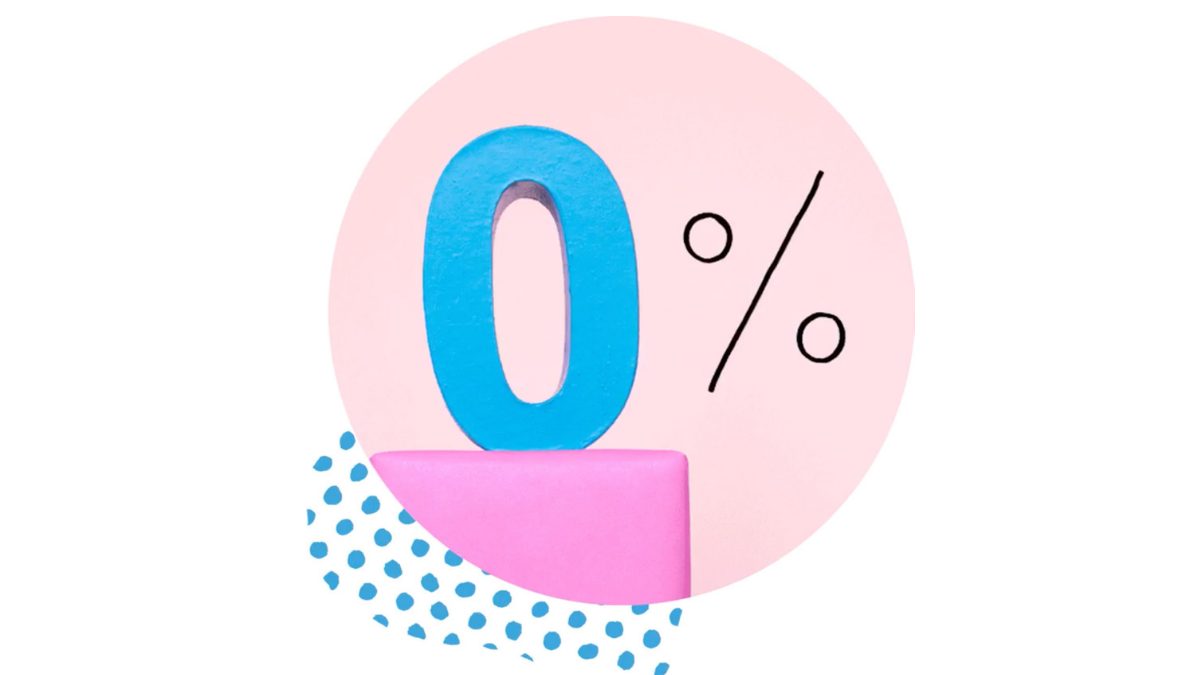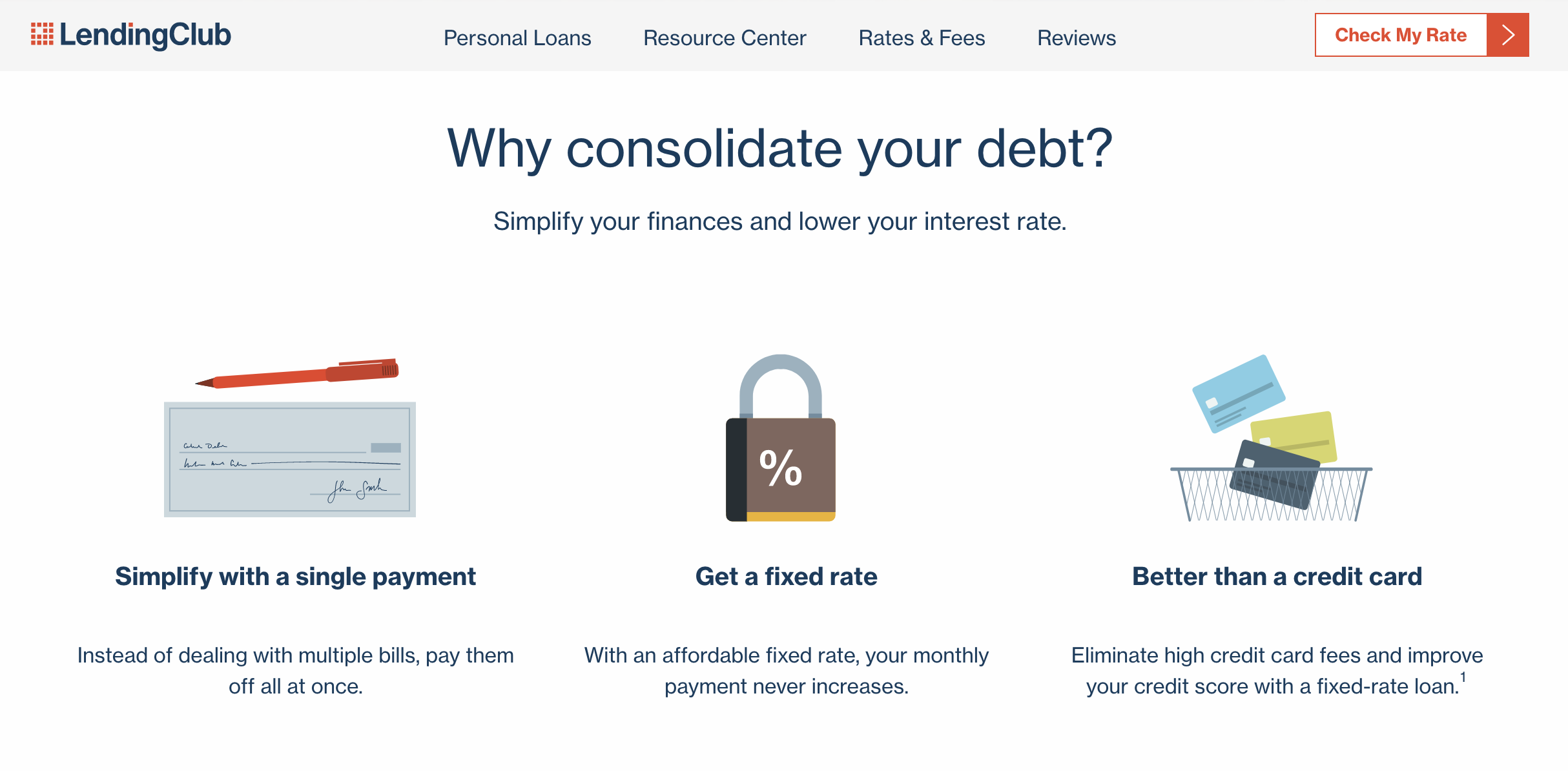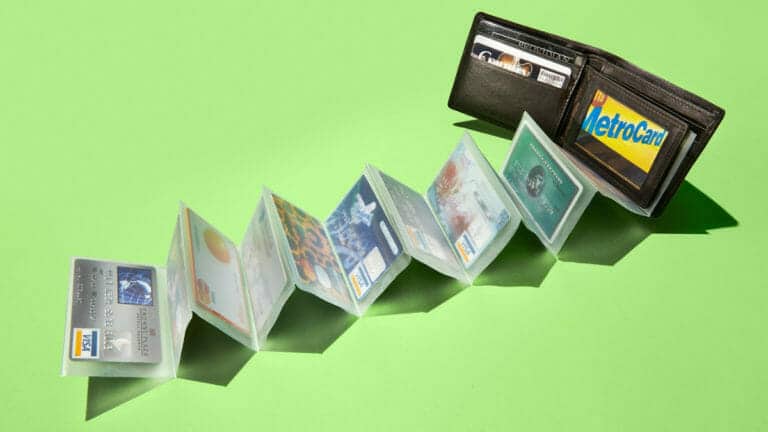If you have credit card debt or are planning to make a large purchase soon, a 0 APR credit card can be a great tool to save money on interest charges. A Credit card issuer isn’t in the business of saving customers money though, are they? So why do so so many credit card companies offer credit cards with a 0 APR period?
There are 15 major credit card companies. Each of them has several different credit card brands and different types of cards. Chase, for example, offers The Chase Freedom card and The Chase Freedom Unlimited card which are both cash rewards credit cards.
American Express offers the Marriott Bonvoy Brilliant card and the Hilton Honors Aspire card which are both travel rewards cards. Credit card companies offer 0 APR credit cards for the same reason they offer a big sign up bonus. To lure new customers and to tempt them away from their competitors.
There is another reason credit card companies offer a 0 APR credit card. They’re hoping you’ll misuse it. Whether you’re using the credit card as a balance transfer card or to pay for a big purchase, if you don’t use it the right way, the credit card companies have got you right where they want you.
We don’t want that to happen so we’ll give you a rundown of the wisdom and pitfalls of 0 APR credit cards.
Credit Card Debt
There is no question that America has a problem with credit card debt.
According to the Federal Reserve, Americans owe a record $1.04 trillion in credit card debt – up from less than $854 billion five years ago.
About 40 percent of Americans pay off their balance in full every month. The remaining 60 percent maintain a high credit card balance that can mean hundreds of dollars in interest payments a year and possibly a low credit score.
Not only does credit card debt hurt your FICO score, but it also makes it hard to save for an emergency fund or a downpayment on a home and to invest. If you have credit card debt, how can a 0 APR credit card help?
How 0 APR Credit Cards Work
A credit card with a 0 APR introductory period allows users to save money because, during that period, you aren’t charged any interest. There are two main types of 0 APR credit cards, a 0 interest balance transfer card, and a 0 interest purchase APR card.

Balance Transfer Cards
You know the hard part of paying off credit card debt is making a dent in the balance when the interest keeps accruing and the interest rate is so high.
The average interest rate on a credit card is 19.24%, and new card offers 14.14%. These sky-high rates are why the stacking method of debt repayment is superior to the snowball method.
Balance transfer cards let you transfer the balance of one of your high-interest credit cards to the new card. During the introductory APR period, no interest charges are accumulating on the balance.
Every penny you pay is going to pay off the balance.
Zero APR Purchase Credit Cards
If you’re planning a large purchase, stuff to do some home improvement projects or new furniture, a new card with an intro APR of 0 can be the ideal way to fund it. During the intro APR period, new purchases can be charged without incurring any interest charges.
To save even more, look for a cash back rewards card that also offers the interest-free introductory period. To save even more, look for a cash rewards card with an interest-free introductory period and a good sign up bonus like a statement credit after spending $X amount on the card within X days of account opening or a cash bonus.
This free course outlines a proven framework that thousands of people have used to eliminate their debt, develop better money habits, and start building a secure financial future.
The Pitfalls
This all sounds great, and if you have credit card debt or a large purchase coming up, you might be ready to apply now for a 0 APR credit card. But not so fast. Before you jump on that 0 APR offer, be aware of the pitfalls.
Grace Period
When you open a new card with a balance transfer offer, you carry a balance on the new card until you get it paid off. When you carry a monthly balance even during the 0 APR intro period, you may lose the new card’s grace period and incur interest charges on new purchases you make on the card.
A grace period is a time before credit card billing cycles end and the payment due date. During that time, you aren’t charged interest on purchases. The grace period is 21 days, but you only have a grace period if you aren’t carrying a balance. But the transferred balances impact the grace period.
If you make new purchases on the balance transfer card, they will start accruing interest at the regular APR the moment they’re made.
To avoid this, do not make any new purchases on your balance transfer card! You got a card with a 0 APR intro rate to help get yourself out of debt. Making new purchases on this or any other credit card is creating more debt!
The Lowest Interest Balance
Okay, you didn’t know. You made a few purchases on the new card and got hit with an interest charge. You’ll get back on track by paying off those charges and the interest charge with your next payment.
But some credit card companies apply your payments to the balance with the lowest interest first. That payment will go toward the balance you transferred and not the new purchases. Those new charges continue to accrue interest until you’ve paid off the entire balance.
Terms and Conditions Apply
You probably don’t read the fine print on credit card offers or anything else. Me neither. But there are all sorts of rules listed in them and if you break one, the 0 APR period ends. Making a late payment can cause this, and the regular APR may kick in, and you may be assessed late fees. Any balance remaining will be assessed the regular APR or even a penalty APR.
This can apply to both balance transfer cards and 0 APR purchase cards. Be sure to pay at least the minimum payment on time each month.
Finding the Best Terms
There are lots of 0 APR credit card offers available, but they all have different terms. Here’s what to look for so you get the best deal you can.
Check Your Credit Score
If you’re in credit card debt, you might not have a perfect credit score. Each time you apply for a credit card, your credit score will drop a few points.
A credit score is a snapshot of an exact moment.
Tweet ThisJust a few and the drop is temporary, but it’s still a drop. So you don’t want to apply for credit cards you are unlikely to be approved for.
Go to Credit Karma and get your free credit score. The site will have a list of cards that you’re more likely to be approved for based on your credit score.
Length of the 0 Intro APR Offer
How long the intro APR period lasts is probably the most important factor when choosing a new credit card. Whether you’re using the new credit card as a balance transfer card or to make a big purchase interest free, you want to find the card with the longest 0 intro APR period possible. That way, you have more time to pay off the balance.
Most cards have a 0 APR introductory period lasting between six and 18 months, but occasionally you can find one with a 24 month 0 APR offer.
Best Regular APR
Once you’ve paid off the balance on the new credit card, you may decide to close the account. This is a mistake. Doing so lowers your credit score. Instead, you can just put a small recurring charge on it like your cell phone payment and set up auto pay. This is easy to do with online banking and mobile banking.
This will keep the account open, but you won’t have to worry about missing a payment and getting hit with late fees. But should you need to use the card more regularly, there is always the risk of going into credit card debt again if you lost your job, for example. Because of this risk, look for a card with the best regular APR.
Avoid Fees
Of course, you don’t want to pay late fees so you’ll always be sure to make at least the minimum payment. But late fees aren’t the only fees that credit card issuers have under their hats. Some cards, particularly rewards cards, come with an annual fee.
This is usually not charged at the account opening but waived for the first year. But after the first year, the annual fee will apply, and it’s nothing more than a fee for simply having the card and if you’re going to take advantage of the rewards the card offers, paying an annual fee isn’t always a loss. But many people open a card with all kinds of bells and whistles but never use enough of them to make paying the annual fee worthwhile. And there are plenty of rewards cards that don’t charge an annual fee so choose one of those instead.
Some cards do have a one-time balance transfer fee, and it’s usually relatively small, between 3% and 5% of the amount of each transfer. But you can find cards that don’t charge a balance transfer fee so search out one of those.
A foreign transaction fee is a percentage charged on each $1 you charge on the card when traveling abroad or making an online purchase from an international site. The fee is usually 3% which can add up when you’re charging things like airline tickets and multi-night hotel stays. Most cards have done away with foreign transaction fees, but they still exist. Be on the lookout for them when choosing a new card.
Get Some Perks
When looking for a new offer, consider what perks you will most use. I know a lot of us are dazzled by travel rewards credit cards with their promise of free flights, upgrades, and hotel stays but be honest. Do you travel enough to take advantage of any points earned on a sign-up bonus or to continue collecting enough points actually to get you those perks?
For my money, a cash rewards credit card is more useful. Some of them give you a percentage back on each dollar you spend, and some give you cash back on rotating categories like grocery stores, select U.S department stores, U.S. gas stations, and restaurants. I’m sure you buy groceries more often than you travel.
Personal Loans
Not everyone will be able to be approved for a credit card with an intro APR of 0. Or perhaps your credit card debt or the large purchase you want to make is more than the credit limit you can be approved for. If that’s the case, you might consider applying for a personal loan.
Peer to peer lenders like Prosper or Credible often has more flexible standards when it comes to who is approved for a loan than credit card companies have when it comes to who is approved for a credit card.

Of course, these companies don’t make 0 interest loans, but their interest rates are often lower than those offered by credit card companies. If you need a lot of money, you can borrow up to $40,000 from
You will also have longer to pay back the loan. Both companies offer loans with terms of 3 to 5 years.
The Best Credit Cards with 0 APR
If you’re in the market for a 0 APR credit card, Credible has a rundown of the best credit cards currently available. Some include a Visa card from Bank of America and a Chase Freedom Visa card.
Capital One, Amex, Citi, and Discover all have 0 APR cards too.
Getting a 0 APR credit card can be a great tool to help you pay down credit card debt and to finance a large purchase for free. The two most expensive things in life are interest and taxes. These credit cards can help you avoid the former.
But use these cards wisely. Buckle down and pay off the balances in full before the introductory period ends and the regular APR kicks in. Don’t make new purchases on a balance transfer card. Any credit card is a tool, but a 0 APR credit card can be one of the most useful tools in your personal finance arsenal.
Show Notes
Cerveza Pacifico: A Mexican beer.
Mint: The easy way to track your spending.


